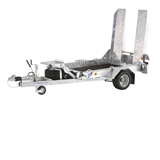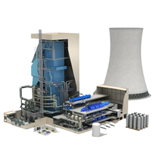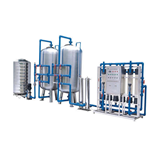Christopher Pyne, Parliamentary Secretary to the Minster for Health and Ageing, said that the new standards were excellent examples of allowing the food industry to be innovative while also protecting public health and safety.
‘Plant sterols can reduce cholesterol uptake when eaten in sufficient amounts. Until now, plant sterols have only been allowed for use in margarines. Food Standards Australia New Zealand (FSANZ) has carried out an extensive safety assessment and, from today, plant sterols are also allowed to be added to low fat milks, low fat yoghurts and breakfast cereals. These type of products are already permitted for use in Europe and North America,’ Pyne said.
‘FSANZ’s consumer research found that most consumers of plant sterol products are health conscious adults who choose foods with a health benefit in mind and as part of a healthy lifestyle. Plant sterol products must carry advisory statements that they should be consumed as part of a healthy diet and that they are not suitable for children under 5 years or pregnant or lactating women. Plant sterols do not provide additional benefits when more than 3 grams a day are consumed.
‘FSANZ is working with the National Heart Foundation of Australia and the Dietitians Association of Australia to provide information about plant sterol foods to doctors, health professionals and consumers. A fact sheet is available on the FSANZ website.
‘I am also pleased to announce that water-based beverages with added vitamins and minerals (formulated beverages) can now be legally manufactured in Australia. These products have been on the shelves in Australia for many years as they have been manufactured in New Zealand as dietary supplements and legally imported to Australia. Now they can be made in Australia. These products will have a maximum limit of 24% fruit ingredients and 7.5% sugar,’ Pyne concluded.
- Suppliers
- New to IndustrySearch? Book a Demo
- Advertise with us
- Login
- Email Marketing
- Buyers
- Get Quotes
- Articles & Ideas
- Login
- Subscribe to newsletter
- My Details
- Get Quotes
- Automation & Control
- Automotive Workshop Equipment
- Commercial Cleaning Equipment & Supplies
- Construction Equipment & Heavy Machinery
- Conveyor Systems & Components
- Electrical & Power Generation Equipment
- Electronic Components
- Farming & Agriculture
- Food & Beverage Processing
- Forklifts & Forklift Attachments
- Hydraulic & Pneumatic Equipment
- Industrial Materials, Tools & Components
- Industrial Pumps
- IT Hardware & Industrial Computing
- IT Software & Applications
- Laboratory Equipment & Instruments
- Manufacturing & Industrial Equipment
- Material Handling & Lifting Equipment
- Metalworking & Machining
- Mining Equipment & Machinery
- Packaging & Labelling Machinery
- Pallet Handling Equipment
- Personal Protective Equipment
- Security & Surveillance
- Test & Measurement
- Transport & Logistic Equipment
- Warehouse Storage, Shelving & Racking
- Waste Treatment & Environmental Management
- Welding Machines & Accessories
- Woodworking & Joinery Machines
- Workplace Equipment
- Workplace Safety Equipment
- Get Quotes
- Automation & Control
- Automotive Workshop Equipment
- Commercial Cleaning Equipment & Supplies
- Construction Equipment & Heavy Machinery
- Conveyor Systems & Components
- Electrical & Power Generation Equipment
- Electronic Components
- Farming & Agriculture
- Food & Beverage Processing
- Forklifts & Forklift Attachments
- Hydraulic & Pneumatic Equipment
- Industrial Materials, Tools & Components
- Industrial Pumps
- IT Hardware & Industrial Computing
- IT Software & Applications
- Laboratory Equipment & Instruments
- Manufacturing & Industrial Equipment
- Material Handling & Lifting Equipment
- Metalworking & Machining
- Mining Equipment & Machinery
- Packaging & Labelling Machinery
- Pallet Handling Equipment
- Personal Protective Equipment
- Security & Surveillance
- Test & Measurement
- Transport & Logistic Equipment
- Warehouse Storage, Shelving & Racking
- Waste Treatment & Environmental Management
- Welding Machines & Accessories
- Woodworking & Joinery Machines
- Workplace Equipment
- Workplace Safety Equipment
Trusted by 1,000,000+ Australian industrial buyers
Buyers
- Discover products & solutions
- Login
- Subscribe To Newsletter
- Browse All Products
- Read Articles
Suppliers
Advertise
- Promote your products & solutions
- New to IndustrySearch? Book a Demo
- Login / Forgot Password
- Advertise Your Products
- Success Stories
- Email Marketing
- Suppliers
- Advertise with us
- Login
- Email Marketing
- Buyers
- Get Quotes
- Articles & Ideas
- Login
- Subscribe to newsletter
- My Details
Get Quotes
- Automation & Control
- Automotive Workshop Equipment
- Commercial Cleaning Equipment & Supplies
- Construction Equipment & Heavy Machinery
- Conveyor Systems & Components
- Electrical & Power Generation Equipment
- Electronic Components
- Farming & Agriculture
- Food & Beverage Processing
- Forklifts & Forklift Attachments
- Hydraulic & Pneumatic Equipment
- Industrial Materials, Tools & Components
- Industrial Pumps
- IT Hardware & Industrial Computing
- IT Software & Applications
- Laboratory Equipment & Instruments
- Manufacturing & Industrial Equipment
- Material Handling & Lifting Equipment
- Metalworking & Machining
- Mining Equipment & Machinery
- Packaging & Labelling Machinery
- Pallet Handling Equipment
- Personal Protective Equipment
- Security & Surveillance
- Test & Measurement
- Transport & Logistic Equipment
- Warehouse Storage, Shelving & Racking
- Waste Treatment & Environmental Management
- Welding Machines & Accessories
- Woodworking & Joinery Machines
- Workplace Equipment
- Workplace Safety Equipment
Get Quotes
- Automation & Control
- Automotive Workshop Equipment
- Commercial Cleaning Equipment & Supplies
- Construction Equipment & Heavy Machinery
- Conveyor Systems & Components
- Electrical & Power Generation Equipment
- Electronic Components
- Farming & Agriculture
- Food & Beverage Processing
- Forklifts & Forklift Attachments
- Hydraulic & Pneumatic Equipment
- Industrial Materials, Tools & Components
- Industrial Pumps
- IT Hardware & Industrial Computing
- IT Software & Applications
- Laboratory Equipment & Instruments
- Manufacturing & Industrial Equipment
- Material Handling & Lifting Equipment
- Metalworking & Machining
- Mining Equipment & Machinery
- Packaging & Labelling Machinery
- Pallet Handling Equipment
- Personal Protective Equipment
- Security & Surveillance
- Test & Measurement
- Transport & Logistic Equipment
- Warehouse Storage, Shelving & Racking
- Waste Treatment & Environmental Management
- Welding Machines & Accessories
- Woodworking & Joinery Machines
- Workplace Equipment
- Workplace Safety Equipment
Trusted by 1,000,000+ Australian industrial buyers





